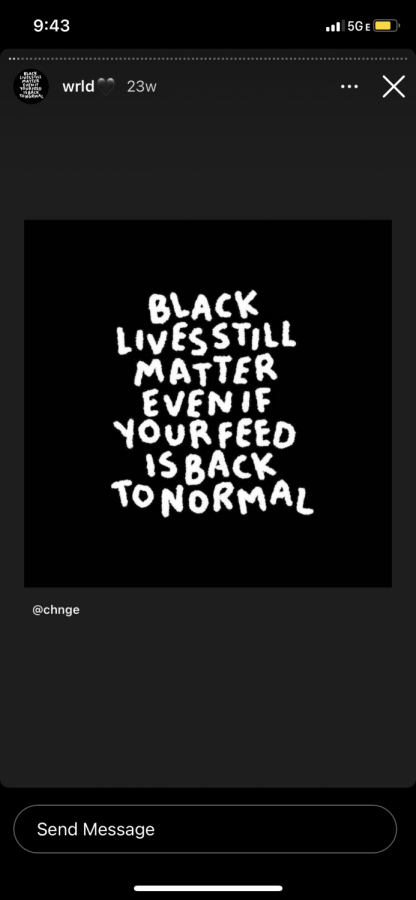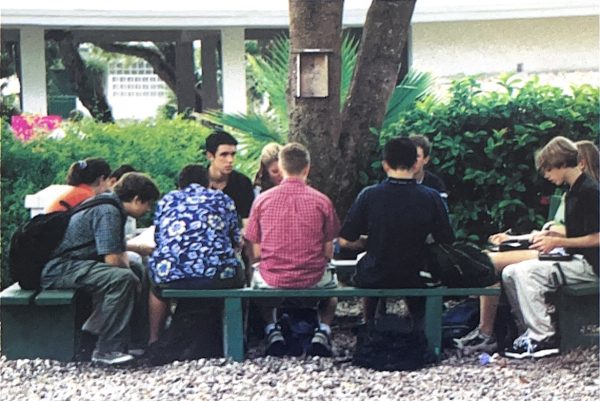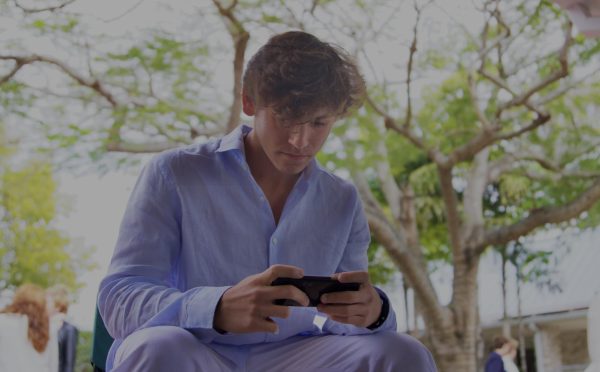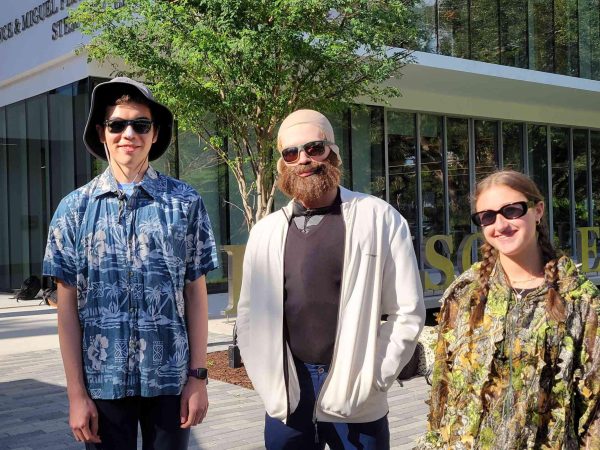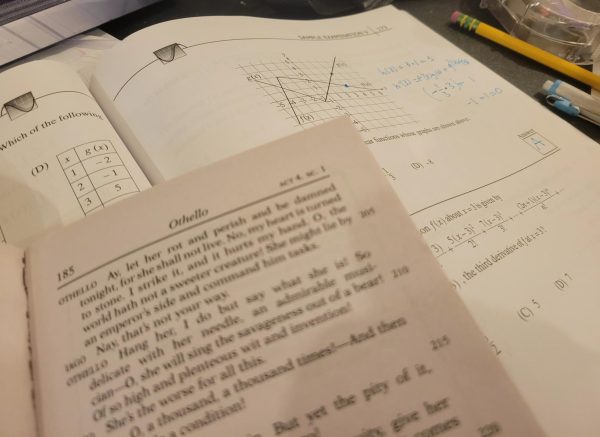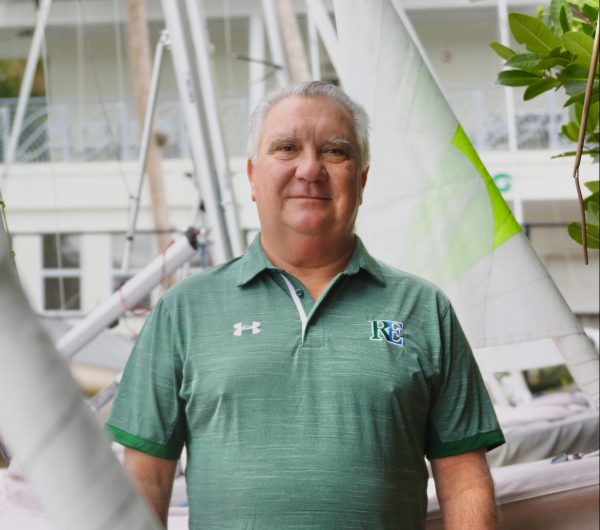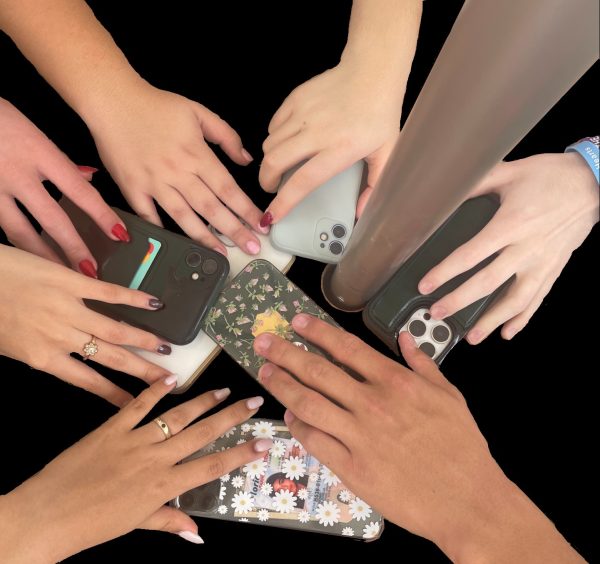The Raider News Diet
Social media offers RE students a convenient way to get their news, even if objectivity can be hard to find
How do Raiders get their news each day? Social media is the likely answer: when asked this question, RE students—especially seniors—overwhelmingly expressed that the task of sifting through one’s feed to find objectivity or opening a non-social-media-based news source is exhausting. As a result, they tend to turn to social media by default, sacrificing objectivity for convenience. But they also pushed back against the idea that social media is inherently more biased than other sources.
“At least for me, I recognize that Instagram is biased, but it’s just so easy,” said Cami Lindsey ‘21. “Everything I use is biased. Turning on CNN is biased, too, so I’ll just check Instagram.”
Elliot Sable ‘21 said he uses Twitter because “although it’s more subjective than news channels since everyone’s saying their own personal opinion, I get so many more opinions and I can assimilate new thoughts into my own.”
“It’s really hard to get objectivity these days because of how politicized everything has become,” admitted Dani Ortiz ‘21. “I get my news from the Apple News app since it shows me a ton of different headlines from varying outlets. I don’t think I’m going to get objectivity from one single source anymore.”
“I use Instagram mostly,” revealed Elanah Arnold ‘21. “I think it’s reliable most of the time, but many of the accounts I follow are left leaning so I’ll usually venture somewhere else if I need more factual information.”
“TikTok is where I hear it first,” said Dani Kaplan ‘21. “I then need to go to Apple News to make sure it’s legit.”
“TikTok is like the catalyst for my research” explained Felipe Campano ‘21. “I hear about things that I don’t hear about anywhere else, then I go out and read articles on it. For example, the number of trans women killed this year. No one is talking about it but many people spoke out on TikTok about it.”
Both Sable and Campano suggested that social media-based news sources might be beneficial to the development of a user’s views because they add diversity in thought. As Sable put it, “The sum of all of the subjective opinions on Twitter makes mine more objective.”
Whether these apps actually do expose their users to a diversity of opinion, however, seems questionable. Instagram, Tiktok, Twitter, and other social media platforms are all profit driven-businesses where revenue produced is based on the amount of time their respective users spend on their platforms. So, their main goal is to keep users hooked to their apps.
According to a study conducted by Trevor Haynes, a Harvard graduate student, users are more likely to stay on social media platforms that show content consistent with their pre-existing views. Therefore, many social media algorithms are geared towards designing users’ feeds to be centered around what they perceive the users’ opinions to be. Trapping people in these “filter bubbles” can prevent them from being exposed to opinions they don’t already have.
Are Raiders comfortable with taking this risk of sacrificing some objectivity for convenience? Some say yes.
“Convenience is definitely a really big thing,” said Sable. “I don’t really want to turn on my TV and watch the news – especially since I don’t like how polarized it is.”
“I want to stay informed but I’m much more likely to if I can rely on Instagram or TikTok for my news” admitted Chloe Wiesenfeld ‘21. “If a little bias is the price for being able to swipe through Instagram in five minutes and refresh myself on current events, then I think it’s worth it.”
Even if it’s filtered, RE students believe that that little dose of news can be a crucial way to hear others’ stories, educate yourself, and spread awareness for underrepresented causes. It can be a tool against misinformation and hate online.
“There is a lot of bias but there are also so many people online who, by being brave enough to share their stories, educate me on their struggles so I can best be an ally,” says Elanah Arnold. “I am extremely grateful for all of those people and—honestly—for social media, which allows us to connect.”
“Acknowledging bias is important, but I think so is acknowledging the power of each of our voices and how social media is this special megaphone where we can reach out to so many,” argued Emma Rosenthal ‘21. “I, along with so many others, would post voting resources and different petitions. I think just getting out the word like this helps these movements gain traction.”
In these unique times, any person who makes an account online unavoidably assumes the responsibility of sorting through subjective viewpoints. Perceptions of right and wrong can be clouded by others’ polarizing opinions. For Raiders, however, it’s just part of the process, and they pride themselves on navigating these uncharted waters.


